Despite laws against the muilation of females, the treatment still continues in many pparts of Africa today. There are different organizations in palce that work against this practice, but the fight has been very hard against traditions that support this tpractice.
According to the afrol web site there FGM is in four types:
Gemale Genital Mutilation (FGM), aka female circumcision or female genital cutting has been in practice for several 1,000 of years in almost 30 African coutnries and Middle Eastern nations. Is it practiced by Muslims, Christians, Jews and followers of AFrican religions.
(DIRECT DEFINITION)
The World Health Organization also classified FGM into four types:
Type I
The WHO defines Type I FGM as the partial or total removal of the clitoris (clitoridectomy) and/or the prepuce (clitoral hood); see Diagram 1B. When it is important to distinguish between the major variations of Type I mutilation, the following subdivisions are proposed: Type Ia, removal of the clitoral hood or prepuce only; Type Ib, removal of the clitoris with the prepuce. In the context of women who seek out labiaplasty, Stern opposes removal of the clitoral hood and points to potential scarring and nerve damage.
Type II
The WHO's definition of Type II FGM is "partial or total removal of the clitoris and the labia minora, with or without excision of the labia majora (excision). When it is important to distinguish between the major variations that have been documented, the following subdivisions are proposed: Type IIa, removal of the labia minora only; Type IIb, partial or total removal of the clitoris and the labia minora; Type IIc, partial or total removal of the clitoris, the labia minora and the labia majora. Note also that, in French, the term ‘excision’ is often used as a general term covering all types of female genital mutilation.
Type III: Infibulation with excision
The WHO defines Type III FGC as narrowing of the vaginal orifice with creation of a covering seal by cutting and appositioning the labia minora and/or the labia majora, with or without excision of the clitoris (infibulation)." It is the most extensive form of FGM, and accounts for about 10% of all FGC procedures described from Africa. Infibulation is also known as "pharaonic circumcision."
In a study of infibulation in the Horn of Africa, Pieters observed that the procedure involves extensive tissue removal of the external genitalia, including all of the labia minora and the inside of the labia majora. The labia majora are then held together using thorns or stitching. In some cases the girl's legs have been tied together for two to six weeks, to prevent her from moving and to allow the healing of the two sides of the vulva. Nothing remains but the walls of flesh from the pubis down to the anus, with the exception of an opening at the inferior portion of the vulva to allow urine and menstrual blood to pass through; see Diagram 1D. Generally, a practitioner recognized as having the necessary skill carries out this procedure, and a local anesthetic is used. However, when carried out "in the bush," infibulation is often performed by an elderly matron or midwife of the village, with no anesthesia used.
A reverse infibulation can be performed to allow for sexual intercourse or when undergoing labor, or by female relatives, whose responsibility it is to inspect the wound every few weeks and open it some more if necessary. During childbirth, the enlargement is too small to allow vaginal delivery, and so the infibulation is opened completely and may be restored after delivery. Again, the legs are sometimes tied together to allow the wound to heal. When childbirth takes place in a hospital, the surgeons may preserve the infibulation by enlarging the vagina with deep episiotomies. Afterwards, the patient may insist that her vulva be closed again.
This practice increases the occurrence of medical complications due to a lack of modern medicine and surgical practices.[citation needed]
A five-year study of 300 women and 100 men in Sudan found that "sexual desire, pleasure, and orgasm are experienced by the majority of women who have been subjected to this extreme sexual mutilation, in spite of their being culturally bound to hide these experiences."
Most advocates of the practice continue to perform the procedure in adherence to standards of beauty that are very different from those in the west. Many infibulated women will contend that the pleasure their partners receive due to this procedure is a definitive part of a successful marriage and enjoyable sex life.[citation needed]
Type IV: Other types
There are other forms of FGM, collectively referred to as Type IV, that may not involve tissue removal. The WHO defines Type IV FGC as "all other harmful procedures to the female genitalia for non-medical purposes, for example, pricking, piercing, incising, scraping and cauterization."This includes a diverse range of practices, such as pricking the clitoris with needles, burning or scarring the genitals as well as ripping or tearing of the vagina. Type IV is found primarily among isolated ethnic groups as well as in combination with other types.
The practice is brought by fear of a daughter's marriageablity and honor in the community. Historic reasons were more for marital fidelity, by controlling a woman's sex drive, preventing lesbianism, ensuring paternity, "calming" her personality and hygiene. In these practices it is considered an important rite of passage.
FGM practices by country
Country Prevalence Type
Benin 5-50% excision
Burkina Faso up to 70% excision
Cameroon local clitoridectomy and excision
Central Afr. Republic 45-50% clitoridectomy and excision
Chad 60% excision and infibulation
Côte d'Ivoire up to 60% excision
DRC (Congo) local excision
Djibouti 98% excision and infibulation
Egypt 85-95% clitoridectomy, excision and infibulation
Eritrea 95% clitoridectomy, excision and infibulation
Ethiopia 70-90% clitoridectomy, excision and infibulation
Gambia 60-90% excision and infibulation
Ghana 15-30% excision
Guinea 65-90% clitoridectomy, excision and infibulation
Guinea Bissau local clitoridectomy and excision
Kenya 50% clitoridectomy, excision and some infibulation
Liberia 50% excision
Mali 94% clitoridectomy, excision and infibulation
Mauritania 25% clitoridectomy and excision
Niger local excision
Nigeria 60-90% clitoridectomy, excision, some infibulation
Senegal 20% excision
Sierra Leone 90% excision
Somalia 98% infibulation
Sudan 90% infibulation and excision
Tanzania 18% excision, infibulation
Togo 12% excision
Uganda local clitoridectomy and excision
Based on statistics from Amnesty International and US govt
According to those who fight the practice of FGM, stopping this practice requires "a profound social change," according to the Director of the International Programme at the Center for Reproductive LAw and Policy, ANika Rahman.
Acccording to Amnesty International, a non-governmental based organization that conducts research inorder to prevent abuse on human rights that are violated. Amnesty has estimated over 130 million women wordwide will be affecgted by some type of FGC with over 2 million procedures being performed every year.
Tuesday, October 28, 2008
Thursday, October 23, 2008
African Superstition
African superstition seems to be really tied into the religion in the book Ancestor Stones.
Hawa's mother who brought upon a plague to her... Asana with her twin dying... and so much more.
Africans tied superstitions with witchcraft. Witchcraft was to blame for the alter of the course of human life whether it is good or ill. The witchcraft became the explanation, the perception and the definition of their problems.. or events.... and also that which happened in nature... The Africans believed the witches were the creators of poverty, diseases, accidents, failures, famine, natural disasters, infertility and difficulties in childbirth, when these things appeared in their life. Anything that could not be explained by a human, it was attributed to witchcraft. I.E. twins.
But the Africans didn't just believe in the negative witchcraft.. but also positive... just like in Asana's case... as her mom makes her go to the man who does spells and such to try to repel her brother's ghost. But in general, Africans attributed witch craft to negative images.
Hawa's mother who brought upon a plague to her... Asana with her twin dying... and so much more.
Africans tied superstitions with witchcraft. Witchcraft was to blame for the alter of the course of human life whether it is good or ill. The witchcraft became the explanation, the perception and the definition of their problems.. or events.... and also that which happened in nature... The Africans believed the witches were the creators of poverty, diseases, accidents, failures, famine, natural disasters, infertility and difficulties in childbirth, when these things appeared in their life. Anything that could not be explained by a human, it was attributed to witchcraft. I.E. twins.
But the Africans didn't just believe in the negative witchcraft.. but also positive... just like in Asana's case... as her mom makes her go to the man who does spells and such to try to repel her brother's ghost. But in general, Africans attributed witch craft to negative images.
Tuesday, October 21, 2008
We are not so different....
FYI, i had good pictures.. but my internet is messed right now.
Although the customs and the background are tweaked, the astonishing comparisons between our lives in America now, and that in the 1970's juxtaposed to that in Africa, are truly not so different.
Serah reminds me of the small town girl from which I have lived in and out of. Our stories are not so similar, but I see what makes us the same. As a small town girl, you must fight for yourself and overcome through your education, or you will be just another housewife, living under the roof of a man. Serah has seen that all too well. She had the chance to overcome and be educated, but instead she took the name of a man who prove himself more of a donkey than king.
Ambrose to me seems like what a typical man would in the 70's... and although that man has far been buried, I see the way he holds himself. He prides himself in sounding like a white man, and by saying "the trouble with the black man is that he just isn't ready to vern himself yet."
Ambrose is a empty-headed follower, paid by the government to live for the government. And while Serah holds on to what I could see is the closest thing to an African hippie, Janneh " but we need to draw the people's attention to what is happening. these guys are lining their pockets, man. grabbing what they can while they're in office. and it's our mney. yours. mine. everybody's."
So Janneh (ha, which we won't get into that past) is all anti-establishment, Serah, the lost voice in the domesticated mess we call marriage.
And although marriage is not evil... I SWEAR I'M NOT FEMINIST. I just think that Serah was the typical small town girl who married the first man that seemed appropriate and left her dreams behind. She had two kids, birthed the rights to live under the wages of the government, trying to fight the man.
I think that Serah just needed some more direction, she was listening to the direction of "man" with no voice of her own. Even thought women's rights proclaimed its way into our lives as American women in the 60's, Serah was the woman who envisioned her equal rights through a window.
While all these rights are looking to expose, just like the equivalency here in America at the time... with the socialism movements and feminism... as equal rights protests knocked on the White House's front porch, Sierra Leone fought for it's own independence from the "man."
Although the customs and the background are tweaked, the astonishing comparisons between our lives in America now, and that in the 1970's juxtaposed to that in Africa, are truly not so different.
Serah reminds me of the small town girl from which I have lived in and out of. Our stories are not so similar, but I see what makes us the same. As a small town girl, you must fight for yourself and overcome through your education, or you will be just another housewife, living under the roof of a man. Serah has seen that all too well. She had the chance to overcome and be educated, but instead she took the name of a man who prove himself more of a donkey than king.
Ambrose to me seems like what a typical man would in the 70's... and although that man has far been buried, I see the way he holds himself. He prides himself in sounding like a white man, and by saying "the trouble with the black man is that he just isn't ready to vern himself yet."
Ambrose is a empty-headed follower, paid by the government to live for the government. And while Serah holds on to what I could see is the closest thing to an African hippie, Janneh " but we need to draw the people's attention to what is happening. these guys are lining their pockets, man. grabbing what they can while they're in office. and it's our mney. yours. mine. everybody's."
So Janneh (ha, which we won't get into that past) is all anti-establishment, Serah, the lost voice in the domesticated mess we call marriage.
And although marriage is not evil... I SWEAR I'M NOT FEMINIST. I just think that Serah was the typical small town girl who married the first man that seemed appropriate and left her dreams behind. She had two kids, birthed the rights to live under the wages of the government, trying to fight the man.
I think that Serah just needed some more direction, she was listening to the direction of "man" with no voice of her own. Even thought women's rights proclaimed its way into our lives as American women in the 60's, Serah was the woman who envisioned her equal rights through a window.
While all these rights are looking to expose, just like the equivalency here in America at the time... with the socialism movements and feminism... as equal rights protests knocked on the White House's front porch, Sierra Leone fought for it's own independence from the "man."
Thursday, October 16, 2008
I don't claim to be a feminist, I promise.
But I am certainly empowered and thrilled to read a book by a woman, for the voice of a woman ( and might I say some of the best and most interesting writing I have read so far!)
"Peace had been declared and yet the war was far from over." -What a beautiful statement and how completely accurate it was to depict such a time. I do not know much yet about it, but from what I do know, this seems completely accurate.
I am so glad that woman finally get a voice, and men get to take the back seat in history for once. Sit down men, it's time to listen.
Althought ironically, the first empowered woman has been robbed of her worthiness even through birth! Poor Asana, isn't it a man to take your name away from you? Ha. In oh-so-many ways.
I find it very interesting that Asana had a name before she had "even seen the light of this world." I think that's extremely neat. What a great custom. And I can't believe her mother worked on her house while she was basically in labor, what a strong person.
Oh yeah, men have to hunt and build houses, well we can birth YOUR children and fix YOUR mistakes, all at the same time. Jealous that we're so strong?
=]
I can see the difference of the times, as Asana was a twin, and yet, neither were killed. So I can tell that these people have seen the destruction of colonialization.
Although I am a bit disgusted that Hawa's mother ate somebodys unborn children. This culture is so very different from mine. I do feel bad for the woman who was so ashamed by her own illness and even her husband didn't want to see her.
Although, the book isn't a complete fist in there air, completely empowering piece, we're still talking about 6 wives to one man. Gross. Although, the one woman in the beginning of the story did leave the grandfather and go on her own. And one of the aunts did divorce. But still 6 wives?
So far I am truly enjoying the story.
"Peace had been declared and yet the war was far from over." -What a beautiful statement and how completely accurate it was to depict such a time. I do not know much yet about it, but from what I do know, this seems completely accurate.
I am so glad that woman finally get a voice, and men get to take the back seat in history for once. Sit down men, it's time to listen.
Althought ironically, the first empowered woman has been robbed of her worthiness even through birth! Poor Asana, isn't it a man to take your name away from you? Ha. In oh-so-many ways.
I find it very interesting that Asana had a name before she had "even seen the light of this world." I think that's extremely neat. What a great custom. And I can't believe her mother worked on her house while she was basically in labor, what a strong person.
Oh yeah, men have to hunt and build houses, well we can birth YOUR children and fix YOUR mistakes, all at the same time. Jealous that we're so strong?
=]
I can see the difference of the times, as Asana was a twin, and yet, neither were killed. So I can tell that these people have seen the destruction of colonialization.
Although I am a bit disgusted that Hawa's mother ate somebodys unborn children. This culture is so very different from mine. I do feel bad for the woman who was so ashamed by her own illness and even her husband didn't want to see her.
Although, the book isn't a complete fist in there air, completely empowering piece, we're still talking about 6 wives to one man. Gross. Although, the one woman in the beginning of the story did leave the grandfather and go on her own. And one of the aunts did divorce. But still 6 wives?
So far I am truly enjoying the story.
Wednesday, October 15, 2008
Xala
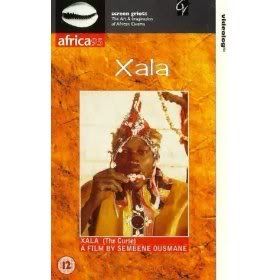
So next to a completely INCOMPTENT main character, haha, I feel like Xala is quite an empowering piece through the female eyes. No, it doesn't have women picketing for equal rights or describes the path it takes for women to vote or equal pay, but it gives women a voice that we have not truly seen yet in our class. Women have always just been the background of the plot, the foil that keeps the males who are main characters through their journeys. But in Xala, we area able to see strong women, and women who rarely take any crap from a man. And although the slap of the hand is the price you pay for opening your mouth, we see women who aren't afraid of the physical abuse, because their will is that much stronger.
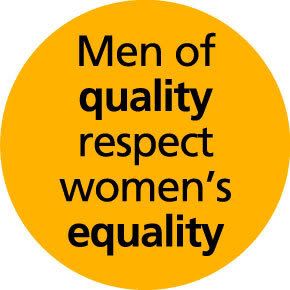
Take Rama, El Hadji's daughter for example. She is a strong female who goes to school and drives and just empowers herself by forcing her voice into the world. Into the world where men have many wives and hold higher rankings, Rama seems to be not intimidated the least by the surroundings in which is her home. Rama is strong in that she empowers herself in her native tongue, Wolof in which she refuses to speak French, and tells her boyfriend Palthe that he is in trouble when he does. She even refuses to speak to the police officer in French, which gives Rama a revolutionary like complex. She seems to be a bit of a troublemaker, but, at the same time I feel shes quite heroine like because she doesn't break herself under the man or the European captives that have dominated her country for so long.
Rama even takes a hit, literally as she puts a stand against polygamy, refusing to do what her father wishes. Her mother, although apologetic to El Hadji for her daughter's contesting, I think seems to not be so harsh to her because Rama is giving a voice for all the women who sometimes push their voices in the drawer. Rama took in her eyes a strong masculine up-bringing and turned her own empowerment, and I fully congratulate her for it.
Even the second wife, at the end when she is talking to her husband starts fighting for equal rights for her children, she tells El Hadji that her children deserve cars like all the children of his other wives. And she yells and gets angry, and El Hadji breaks with a promise that he will. I did not expect the wives to be so demanding nor did I expect them to speak up to their husbands in a society that is so male-dominated and plus that El Hadji is such a high ranking man in society and the business world, I'd feel he'd be more firm and less taken by all the women around him breaking him down.She even treats him like less than a man when he cannot perform in bed. If that isn't cutting his already barely existent manhood in half, =]
But I guess thats what he gets for techinically having three wives.
And even the women contest a lot against the polgamy, I'm happy that the author choose to give these women a voice and a dominate personality in this piece. I really found it to be quite interesting.
Thursday, October 9, 2008
Chinua Achebe
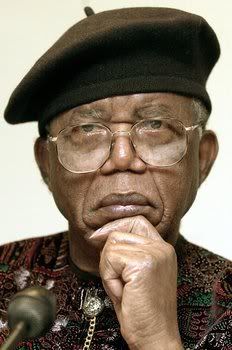
"I would be quite satisfied if my novels (especially the ones I set in the past) did no more than teach my readers that their past - with all its imperfections - was not one long night of savagery from which the first Europeans acting on God's behalf delivered them"
Chinua Achebe was born in Ogidi, Nigeria November 16, 1930 (1930-11-16) . Achebe's life was influenced by the values of his parent's, Tofunicaon and Tyleesha Achebe, traditional Igbo culture, who were Evangelicla Protestants. In 1944 Achebe attended the Government College in Umuahia and also the University college of Ibadan, where he studied English, history and theology. He worked as a teacher for a short time in Africa and America until he tok up the Nigerian Broadcasting Company in Lagos in 1954 which is the time he composed his first novel, "Things Fall Apart." In the 1960s he became the director of External Services in charge of the Voice of Nigeria.
During the time of the Nigerian Civil war, which occured between 1967-1970, Achebe was in the Biafran government service and then he moved on to teaching U.S. and Nigerian universities, the writings of Achebe's during this period was a reflection of his own personal disappointment with Nigeria had how it had turned since independence.
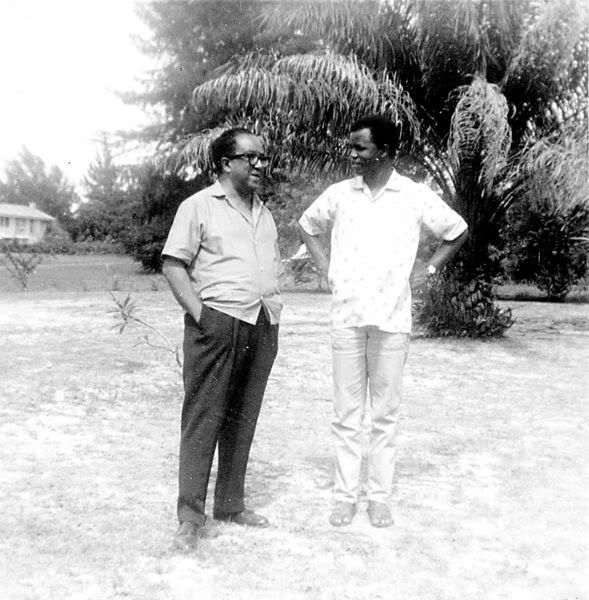 (Achebe is on the right)
(Achebe is on the right)In 1967 Achebe co-founded a publishing company at Enugu with his friend, a poet named Christopher Okigbo, who was killed during the Nigerian Civil War. After the fall of the Republic of Biafra, Achebe was appointed research fellow at the University of Nigeria, after he was a professor of English, then retired in 1981.

In 1981, Achebe was a professor emeritus, in 1971 he edited Okike, the leading journal of the Nigerian new writing. He also became professor of English at teh University of Massachusetts, Amherst.
In the 1990s Achebe was part of the faculty at Bard College where he taught literature to undergraduates. But after an automobile accident in 1990 on the Lagos-IBadan expressway, Achebe was permanently confined to a wheelchair.
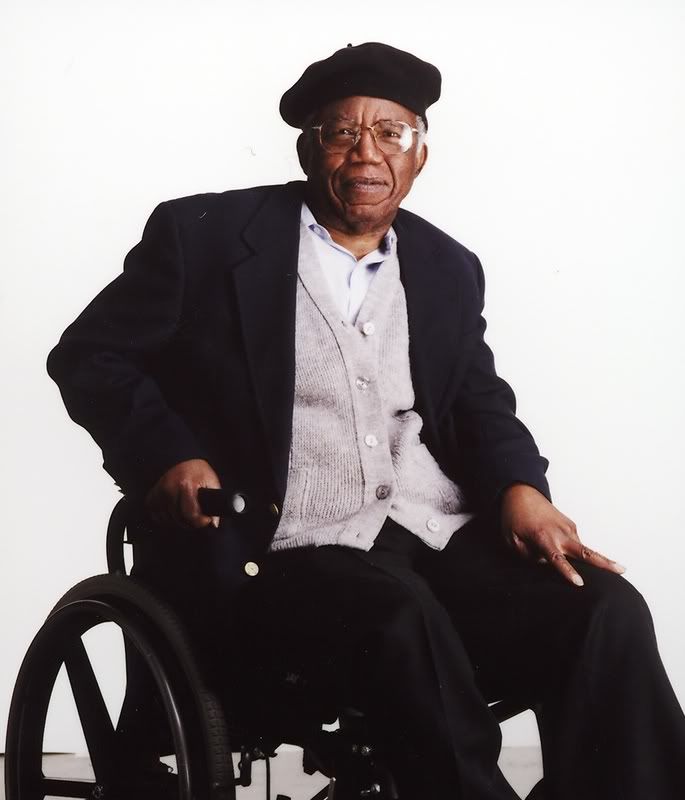
Novels
Things Fall Apart, (1958)
No Longer at Ease, (1960)
Arrow of God, (1964)
A Man of the People, (1966)
Anthills of the Savannah, (1987)
Short Stories
"Marriage Is A Private Affair", (1952)
"Dead Men's Path", (1953)
The Sacrificial Egg and Other Stories, (1953)
"Civil Peace", (1971)
Girls at War and Other Stories, (1973)
African Short Stories (editor, with C.L. Innes), (1985)
Heinemann Book of Contemporary African Short Stories (editor, with C.L. Innes), (1992)
"The Voter"
Poetry
Beware, Soul-Brother, and Other Poems, (1971) (published in the US as Christmas at Biafra, and Other Poems, 1973)
Don't let him die: An anthology of memorial poems for Christopher Okigbo (editor, with Dubem Okafor), (1978)
Another Africa, (1998)
Collected Poems, Carcanet Press (2005)
Refugee Mother And Child
Vultures, which is used GCSE English as a 'poem from another Culture'
Essays, Criticism and Political Commentary
The Novelist as Teacher, (1965)
An Image of Africa: Racism in Conrad's "Heart of Darkness", (1975)
Morning Yet on Creation Day, (1975)
The Trouble With Nigeria, (1984)
Hopes and Impediments, (1988)
Home and Exile, (2000)
Reflections of a British protected Child (2008) (forthcoming)
Children's Books
Chike and the River, (1966)
How the Leopard Got His Claws (with John Iroaganachi), (1972)
The Flute, (1975)
The Drum, (1978)
Tuesday, October 7, 2008
It's not hard to see...
My Response to From How Europe Underdeveloped Africa by Walter Rodney

........What Europeans did to the Africans. It's also not to hard to see how ruthless they were exposing the culture and manipulating the minds of peoples who kept to themselves. Had the Europeans not settled their way into Africa, I'm sure the Africans would have stayed a long time in their own regions. It seems to me after all the readings so far, that Africans did not have much interest in the materialistic nor any Imperial rankings of the sort. Reading the stories of those who have been taken for granted, I have been able to change my mind.
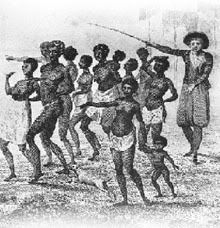
I come from a materialistic civilization. Money is a primary key in trade in my country, religion is everywhere I turn but no longer a form of a sacred intimate between worshipper or being, but better a means of pointing the fingers at those whose believes do not reflect your own. Africa has not been this way, and yet their simplistic and innocent way of life was raided by greedy men with guns.
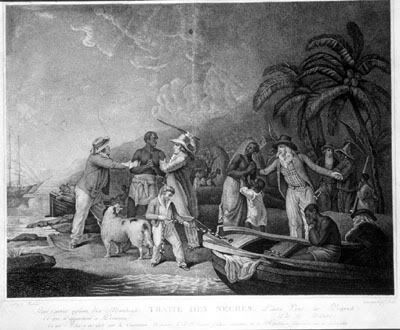
Europeans used their faith as a way to manipulate the minds of many Africans. If you learned the language and followed the faith, you were able to expderience the trade, you were able to find yourself on the level of the beings who came with wealth, and much finer things. But Africans lost sight, and the non-existent greed became a small glowing green flame in their eyes and soon they were trading their own countrymen for European goods. Goods that they had lasted a long time without, and were slowly contributing to their own demise without any understanding that they were being used all along.

The natural resources that African was abundant that only served purpose in need and not the greed, for the survival of the natives and not the monies that it was gaining from in Europe. These resources were being exploited and destroyed--mines, ivory, rubber...etc. Which also turned the natives that owned the resources in the first place, the workers who would in slavery be forced to steal from their own land and be worked to near-death or even demise itself to support the European's thirst for wealth.
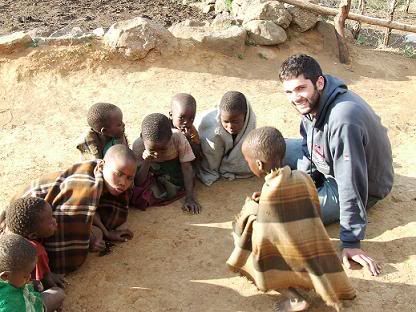
And as Rodney said "What did colonial governments do in the interest of Africans? Supposedly, they built railroads, schools, hospitals and the like. The sum total of these services was amazingly small." In Chapter 6.
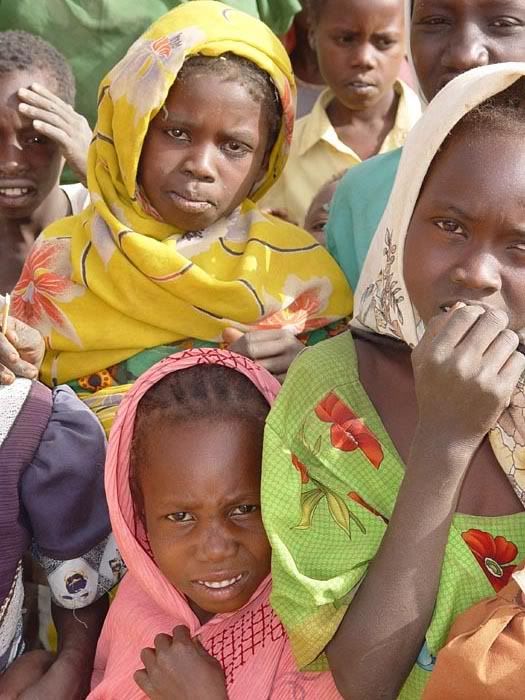
But who were the Europeans surviving when they had best interests in mind? Schools maybe, as they converted more and more Africans over to christianity to keep the "heathens" culture before its exposure happened to fall upon a European shoe. But these railroads and schools, roads and hopsitals were all being built by slaves who had no initial gain. And even today, the medical treatment in Africa is a very poor system. The widespread of deaths that involve in HIV has not been solved by the "all the hospitals" that Europeans built.
I agree much with this essay in it's essence, I think it's hard to argue that Africans wouldn't be better off without the colonization.
Here's a great link to some REALLY REALLY GREAT PICTURES:http://www.flickr.com/photos/8862328@N03/sets/72157600599327714/
I advise you to check them out. THEY'RE AMAZING.

........What Europeans did to the Africans. It's also not to hard to see how ruthless they were exposing the culture and manipulating the minds of peoples who kept to themselves. Had the Europeans not settled their way into Africa, I'm sure the Africans would have stayed a long time in their own regions. It seems to me after all the readings so far, that Africans did not have much interest in the materialistic nor any Imperial rankings of the sort. Reading the stories of those who have been taken for granted, I have been able to change my mind.

I come from a materialistic civilization. Money is a primary key in trade in my country, religion is everywhere I turn but no longer a form of a sacred intimate between worshipper or being, but better a means of pointing the fingers at those whose believes do not reflect your own. Africa has not been this way, and yet their simplistic and innocent way of life was raided by greedy men with guns.

Europeans used their faith as a way to manipulate the minds of many Africans. If you learned the language and followed the faith, you were able to expderience the trade, you were able to find yourself on the level of the beings who came with wealth, and much finer things. But Africans lost sight, and the non-existent greed became a small glowing green flame in their eyes and soon they were trading their own countrymen for European goods. Goods that they had lasted a long time without, and were slowly contributing to their own demise without any understanding that they were being used all along.

The natural resources that African was abundant that only served purpose in need and not the greed, for the survival of the natives and not the monies that it was gaining from in Europe. These resources were being exploited and destroyed--mines, ivory, rubber...etc. Which also turned the natives that owned the resources in the first place, the workers who would in slavery be forced to steal from their own land and be worked to near-death or even demise itself to support the European's thirst for wealth.

And as Rodney said "What did colonial governments do in the interest of Africans? Supposedly, they built railroads, schools, hospitals and the like. The sum total of these services was amazingly small." In Chapter 6.

But who were the Europeans surviving when they had best interests in mind? Schools maybe, as they converted more and more Africans over to christianity to keep the "heathens" culture before its exposure happened to fall upon a European shoe. But these railroads and schools, roads and hopsitals were all being built by slaves who had no initial gain. And even today, the medical treatment in Africa is a very poor system. The widespread of deaths that involve in HIV has not been solved by the "all the hospitals" that Europeans built.
I agree much with this essay in it's essence, I think it's hard to argue that Africans wouldn't be better off without the colonization.
Here's a great link to some REALLY REALLY GREAT PICTURES:http://www.flickr.com/photos/8862328@N03/sets/72157600599327714/
I advise you to check them out. THEY'RE AMAZING.
Thursday, October 2, 2008
The defense has spoken.
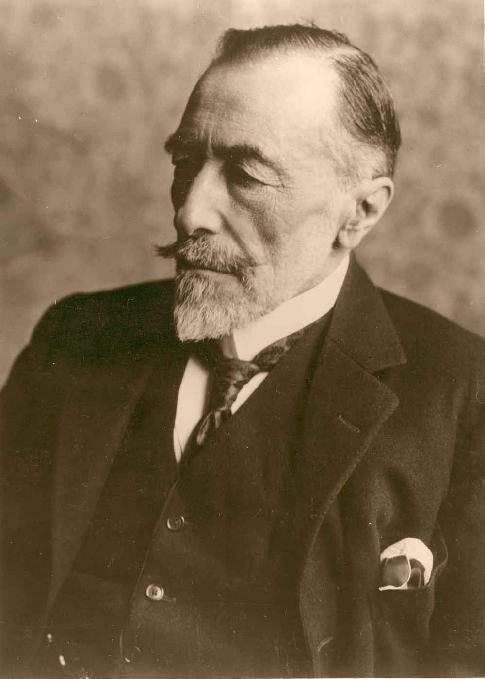
Joseph Conrad
Reading Achebe's essay my interest sparked and completely ignited the more I read on. I could sense this deep passion within Achebe's words and I sensed a very deep offense.
When I googled the name Joseph Conrad and I saw the picture, I was instantly filled with answers and my own assumptions of where Achebe was coming from. I understood Achebe as he explained that Conrad was not holding his best interest in his novel.
"Is Conrad saying then that these two rivers are very different, one good, the other bad? Yes, but that is not the real point. It is not the differentness that worries Conrad but the lurking hint of kinship, of common ancestry. For the Thames too "has been one of the dark places of the earth." It conquered its darkness, of course, and is now in daylight and at peace. But if it were to visit its primordial relative, the Congo, it would run the terrible risk of hearing grotesque echoes of its own forgotten darkness, and falling victim to an avenging recrudescence of the mindless frenzy of the first beginnings. "
"We were wanderers on a prehistoric earth, on an earth that wore the aspect of an unknown planet. We could have fancied ourselves the first of men taking possession of an accursed inheritance, to be subdued at the cost of profound anguish and of excessive toil. But suddenly as we struggled round a bend there would be a glimpse of rush walls, of peaked grass-roofs, a burst of yells, a whirl of black limbs, a mass of hands clapping, of feet stamping, of bodies swaying, of eyes rolling under the droop of heavy and motionless foliage. The steamer toiled along slowly on the edge of a black and incomprehensible frenzy. The prehistoric man was cursing us, praying to us, welcoming us -- who could tell? We were cut off from the comprehension of our surroundings; we glided past like phantoms, wondering and secretly appalled, as sane men would be before an enthusiastic outbreak in a madhouse. We could not understand because we were too far and could not remember, because we were traveling in the night of first ages, of those ages that are gone, leaving hardly a sign -- and no memories.
The earth seemed unearthly. We are accustomed to look upon the shackled form of a conquered monster, but there -- there you could look at a thing monstrous and free. It was unearthly and the men were .... No they were not inhuman. Well, you know that was the worst of it -- this suspicion of their not being inhuman. It would come slowly to one. They howled and leaped and spun and made horrid faces, but what thrilled you, was just the thought of their humanity -- like yours -- the thought of your remote kinship with this wild and passionate uproar. Ugly. Yes, it was ugly enough, but if you were man enough you would admit to yourself that there was in you just the faintest trace of a response to the terrible frankness of that noise, a dim suspicion of there being a meaning in it which you -- you so remote from the night of first ages -- could comprehend.
Herein lies the meaning of Heart of Darkness and the fascination it holds over the Western mind: "What thrilled you was just the thought of their humanity -- like yours .... Ugly." "
It makes me wonder what aim was be taking and the best interest that was proposed to be served. If the story of abuse was told through a white man to help serve purpose of awareness to those in the world who have no view or distorted of what took place, can he disguise his innocence in adjectives that don't compliment the plot?
I agree with Achebe in a sense that a man is telling a story that is his roots and not the authors, without any real sense of background. It's not that a white man can't tell the story of the brutality and abuse of the Africans, but I'm just saying, haven't white men said enough?
I feel that you can't right the story through someone else's view properly with just a desire to tell a story. I agree with Achebe that maybe Conrad's stance has no floor to hold it. How well does Conrad know about the backrgound of this people and how aware is he of their present?
I just feel like the best interest weren't necessarily served, and I wouldn't haven been able to see that without reading this essay.
Subscribe to:
Comments (Atom)
